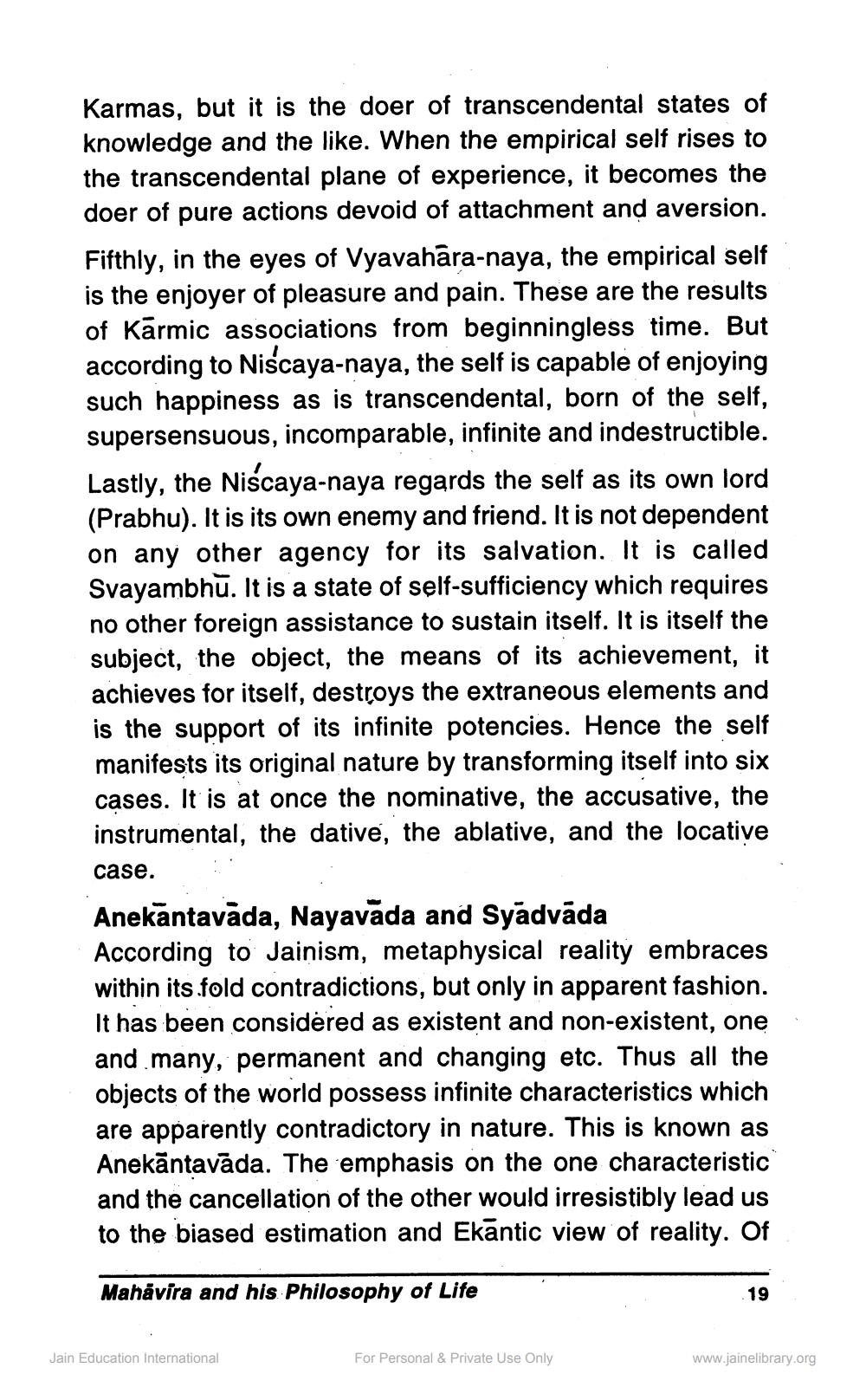________________
Karmas, but it is the doer of transcendental states of knowledge and the like. When the empirical self rises to the transcendental plane of experience, it becomes the doer of pure actions devoid of attachment and aversion. Fifthly, in the eyes of Vyavahara-naya, the empirical self is the enjoyer of pleasure and pain. These are the results of Karmic associations from beginningless time. But according to Niscaya-naya, the self is capable of enjoying such happiness as is transcendental, born of the self, supersensuous, incomparable, infinite and indestructible. Lastly, the Niścaya-naya regards the self as its own lord (Prabhu). It is its own enemy and friend. It is not dependent on any other agency for its salvation. It is called Svayambhu. It is a state of self-sufficiency which requires no other foreign assistance to sustain itself. It is itself the subject, the object, the means of its achievement, it achieves for itself, destroys the extraneous elements and is the support of its infinite potencies. Hence the self manifests its original nature by transforming itself into six cases. It is at once the nominative, the accusative, the instrumental, the dative, the ablative, and the locative
case.
Anekantavada, Nayavada and Syadvāda According to Jainism, metaphysical reality embraces within its fold contradictions, but only in apparent fashion. It has been considered as existent and non-existent, one and many, permanent and changing etc. Thus all the objects of the world possess infinite characteristics which are apparently contradictory in nature. This is known as Anekantavāda. The emphasis on the one characteristic and the cancellation of the other would irresistibly lead us to the biased estimation and Ekantic view of reality. Of
Mahavira and his Philosophy of Life
Jain Education International
For Personal & Private Use Only
19
www.jainelibrary.org




